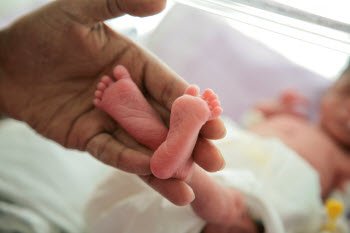According to a new research, premature birth – where waters break too soon, triggering labor – may be caused by specific bacteria.
The research could lead to screening and possible treatment for women at risk of early labor, say researchers at Duke University School of Medicine in North Carolina.
The findings, published in the journal PLOS ONE, suggest certain bacteria may lead to thinning of the membranes around the baby, causing them to tear.
Early rupture of membranes causes almost a third of all premature births.
The membranes that make up the sac that holds the baby usually break at the start of labor.
If a mother’s waters break before the baby has reached full term, the medical term is preterm premature rupture of the membranes (PPROM).
If this happens early, before contractions start, it can – but does not always – trigger early labor.

The researchers have found high numbers of bacteria at the site where membranes rupture, which are linked with the thinning of membranes.
If the bacteria are the cause rather than the consequence of early membrane rupture, it may be possible to develop new treatments or screen for women at risk, they say.
Study author Amy Murtha, associate professor of obstetrics and gynaecology at Duke University School of Medicine, said: “For instance, if we think that certain bacteria are associated with premature rupturing of the membranes, we can screen for this bacteria early in pregnancy.
“We then might be able to treat affected women with antibiotics and reduce their risk for PPROM.
“Our research is several steps away from this, but it gives us opportunities to explore potential targeted therapeutic interventions, which we lack in obstetrics.”
The researchers examined membrane samples in 48 women who had just given birth, including those with PPROM, those who had an early birth for other reasons, and those with babies born at full term.
The researchers found bacteria were present in all membranes, but the more bacteria present, the thinner the membranes, especially in women with PPROM.
